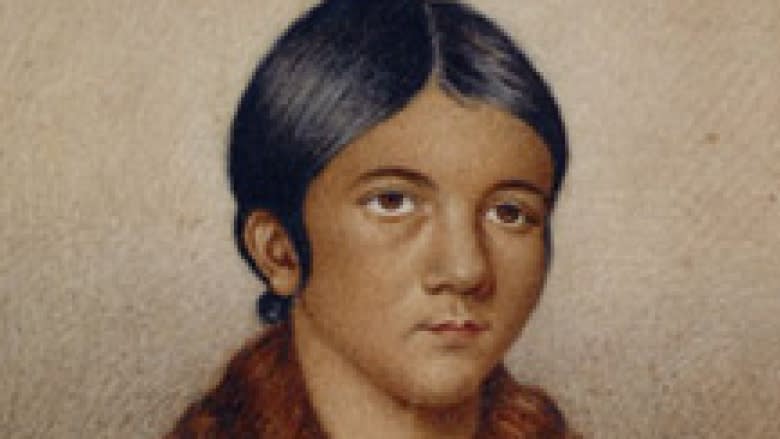Ottawa backs request for return of Beothuk remains from Scotland
Ottawa is throwing its weight behind an effort to repatriate the remains of two Indigenous people taken from a Newfoundland gravesite in 1828 that are now at a museum in Scotland.
Heritage Minister Mélanie Joly has taken the unusual step of notifying the director of National Museums Scotland that Canada will make a formal demand.
The remains are Nonosabasut and his wife Demasduit, two of the last Beothuks, an Indigenous people declared extinct in 1829. Some historians have claimed the Beothuks were the victims of genocide.
"The government of Canada considers this matter to be of considerable importance," Joly wrote to Gordon Rintoul on May 26.
"As the government of Canada is committed to reconciliation with its Indigenous peoples, I am writing to inform you that it is now involved in this matter."
CBC News obtained a copy of the letter and related material through the Access to Information Act.
The federal letter revives a campaign by the Newfoundland and Labrador government, and the chief of a Mi'kmaq band, to have two skulls and related burial objects returned to Canada.
"This is wonderful news," said Chief Mi'sel Joe of the Miawpukek First Nation of Conne River, N.L., that claims kinship with the Beothuks. "When they come back to Canada, I want to travel with them."
Sweetgrass ceremony
The chief has twice visited the National Museum of Scotland in Edinburgh to press for repatriation. He was allowed to perform a sweetgrass ceremony over the skulls in the museum during a visit last year. He said he was not aware of the federal initiative until contacted by CBC News.
The provincial government has also been rebuffed. Officials at the Edinburgh museum have said they will entertain a request only from the Canadian government in association with the Canadian Museum of History.
"Assisting in this matter would be consistent with the government's commitment toward reconciliation with Canada's Aboriginal peoples," says a briefing note for Joly.
"Return of these remains, or a concerted effort to have them returned, would be a high-profile demonstration of that commitment."
Demasduit was kidnapped by a European fur trapper in March 1819, to retaliate for an alleged theft by her tribe. Nonosabasut was killed that same year as he tried to rescue his wife, who was given the name Mary March by her English captors.
Demasduit died of tuberculosis in January 1820, and was returned to Beothuk land to be buried at Red Indian Lake. A few years later, a Scottish explorer retrieved the two skulls and some grave goods, which eventually made their way to Edinburgh.
A spokesman for Joly said the department is putting together a formal request for their return.
"The department is still assembling all of the elements required by the trustees of the museum in Edinburgh, in order to ensure the case is complete and as strong as possible," said Pierre-Olivier Herbert.
Last of the Beothuks
Susan Gray, a spokeswoman for the National Museums Scotland, confirmed receipt of Joly's letter, saying "we have been happy to provide all materials and information that the Canadian government has required and are continuing a constructive dialogue with the government and its civil servants."
The Edinburgh museum's policy for considering repatriation requests also requires the participation of a "community descended from those to whom the remains are ancestral.
"The community of claimants would need to demonstrate that it is a direct genealogical descendant of the community whose remains are under claim and/or that it continues to share the same culture ...."
Chief Joe says it's unlikely any repatriated remains will be re-interred in Newfoundland.
"I have no illusion that these remains will go back on the land," he said in an interview from St. John's.
"They're so famous that you couldn't possibly take a chance to go put them back on the land because they'll be stolen again by someone. So they have to go to a secure place. I prefer that it would be in Newfoundland because they were stolen from Newfoundland."
The Canadian Museum of History, across the Ottawa River from Parliament Hill, holds fragmentary remains of an estimated 10 Beothuks, said spokeswoman Eliane Laberge.
"However, we have no specific information about the identity of these individuals," she said, adding the museum has never received a formal request by any Indigenous group for return of the remains.
Those remains emerged from field work at five sites in northeastern Newfoundland from 1927 to 1966, she said.
Shanawdithit, captured in 1823, died at St. John's in 1829, and is regarded as the last of the Beothuks. Nonosabasut and Demasduit were her aunt and uncle.
Follow @DeanBeeby on Twitter



